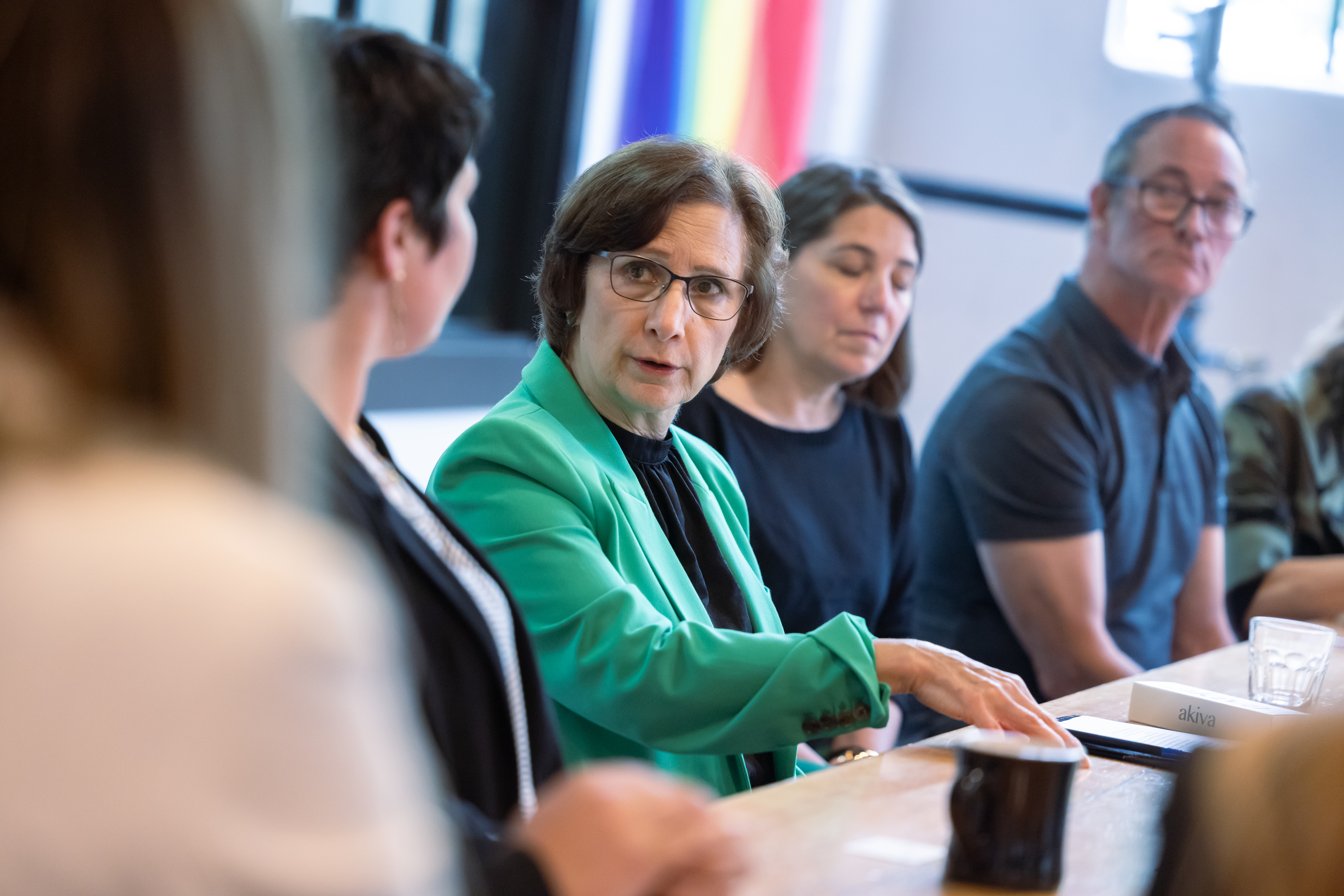Capital Chatter: A conference without PowerPoints
Published 7:00 am Thursday, August 22, 2019

- Capital Chatter: The real reason that HB 2020 failed
The center of Oregon politics shifted this week to the south-central coast.
Legislators who represent the coast held their eighth annual Oregon Coastal Caucus Economic Summit, this time in Florence.
It has been a profound two days of wide-ranging discussions about infrastructure, which sounds boring but was not.
I am only half-facetious in saying the summit succeeds because there are no PowerPoint presentations. Instead, one panel after another conversed about infrastructure needs that affect not just the coast but the entire state — from water to the judicial system to education to housing to working with tribal governments — and how to collaborate to meet those needs.
In no particular order, here are excerpts from a few of the panels:
Tim Gross, Newport’s public works director, talked about the city’s dam project and the community’s relief that Gov. Kate Brown changed her mind and did not veto its state funding.
Sen. Cliff Bentz, R-Ontario, explained to the audience why Eastern Oregonians are justified in their paranoia about having access to adequate water.
House Speaker Tina Kotek, D-Portland, highlighted the importance of innovation for adapting to climate change in ways that benefit all Oregonians. She and State Treasurer Tobias Read warned that innovation must have a reason and a goal, instead of innovating just for the sake of innovation.
Labor Commissioner Val Hoyle fulfilled her self-professed reputation for not being subtle. She said the state must end its system of funding higher education through “paying for butts in seats” and instead focus on outcomes, so students can be ready for jobs without debt.
She advocated having “signing days” at high schools for students who enter apprenticeships in the trades, so they are recognized in the same manner as student-athletes who sign to play sports at a college.
Lane Community College President Margaret Hamilton was asked about “soft skills” that employers demand. She said those skills are embedded in the LCC courses, which I think is essential because research indicates 50% to 70% of success in a job comes from a person’s emotional intelligence, not technical skills.
Hamilton and university presidents disagreed about how easy it is for community college students to transfer their credits to four-year institutions, although Hamilton cited improvements. “These are taxpayer dollars that are going out the window if we’re not getting (students) on pathways early,” Hamilton said.
Western Oregon University President Rex Fuller called for making college more affordable, which I interpreted as a call for more state money. Eastern Oregon University President Tom Insko also asked for more investment but added that universities must be accountable.
The economic summit drew more than 600 people: tribal leaders and state agency directors, academicians and area residents, statewide elected officials and county commissioners, lobbyists and legislators, mayors and members of Oregon’s congressional delegation, and others. As is typically the case at conventions, the side conversations in the halls undoubtedly were as informative and influential as the formal presentations.
A driving force behind the summit is Sen. Arnie Roblan, D-Coos Bay. His indefatigable legislative policy adviser, Rosie Shatkin, is the lead organizer. Thursday was her birthday and participants, including Sen. Ron Wyden, treated her to a rousing rendition of “Happy Birthday.”
Another member of the congressional delegation, Rep. Peter DeFazio, who represents Oregon’s 4th Congressional district, spoke Wednesday about the Coast Guard, transportation and other issues.
The economic summit is unique in part because the Coastal Caucus sets an example for decision-making. It is bipartisan and bicameral. The current chair is a south coast legislator, Rep. David Brock Smith, R-Port Orford. The vice chair is a north coast lawmaker, Sen. Betsy Johnson, D-Astoria.
Among other things, Brock Smith noted the group’s cohesive relationships with the coastal county commissioners.
During a legislative session, the eight coastal legislators meet every Thursday morning to discuss issues affecting the coast. They do not take a group stance on an issue unless everyone agrees. The relationships formed through their collaborations allows them to disagree on other issues while respecting the divergent viewpoints.
“The unity of this group is very unique,” said Sen. Dallas Heard, R-Roseburg, who previously served in the Oregon House and now represents a large Senate district that includes the south coast.
He recounted being so dispirited by partisanship in the House that he wondered about continuing as a legislator. He credited the Coastal Caucus with helping restore his hope and his passion, adding that it really is the responsibility of legislators to work together for the common good of everyone. “That sounds like a cheesy statement anymore, but it’s probably never been more relevant than it is now,” he said.
The rural-urban divide was a big topic on both Wednesday and Thursday. “I see it all the time on the national level,” said Rep. Kurt Schrader, who represents the 5th Congressional District. “There’s a lack of understanding by the folks in the cities about the plight we have out here.”
Schrader, who has a small farm in the Canby area, said he sometimes feels like he lives in a petting zoo.
“The city people will come out and spend money and time in my backyard,” he said. “Then they go back in the city and they pass all this legislation that makes it almost impossible for me to do what they seem to like to see and be part of.
“That’s a big problem. That’s why this group of bipartisan individuals can make a huge difference in your state legislature.”
He said rural Oregonians need to be able to make a living, including through agriculture and forestry.
Rep. Dave Gomberg, D-Otis, and his coastal colleagues pointed out that many of them represent districts that are neither conservative red nor liberal blue. Their constituents are both, and thus their districts are purple.
As a result, they have to collaborate and be able to defend their decisions on sound policy, not politics.
Collaboration was the overriding theme.
Dick Hughes, who writes the weekly Capital Chatter column, has been covering the Oregon political scene since 1976. Contact him at TheHughesisms@Gmail.com , Facebook.com/Hughesisms, YouTube.com/DickHughes or Twitter.com/DickHughes.





